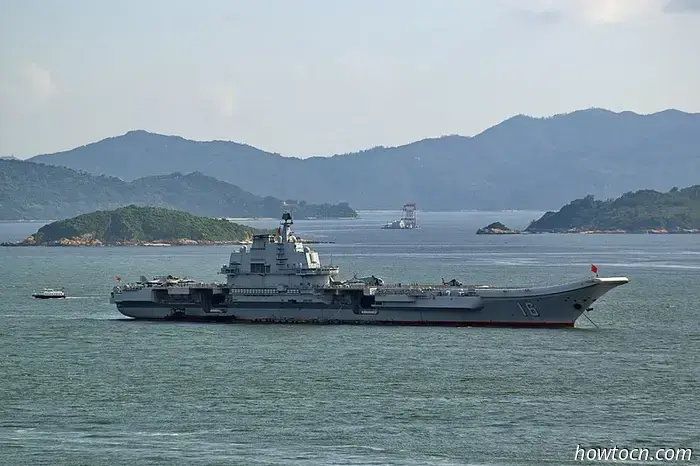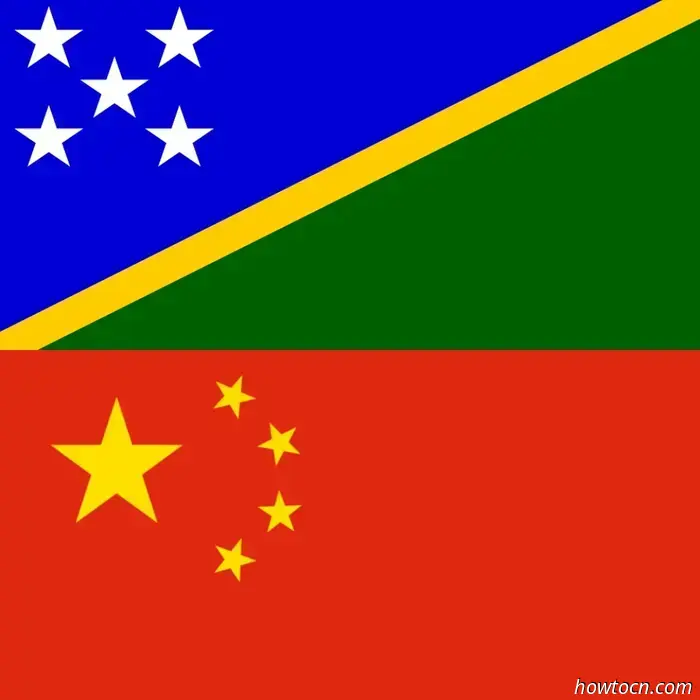
The People’s Liberation Army Navy (PLAN) is increasingly asserting its presence both regionally and globally. The security agreement between China and the Solomon Islands, signed in April 2022, allows for Chinese maritime security vessels to operate deep within the Pacific. In May, a Chinese surveillance ship was observed in the Indian Ocean near the coast of Western Australia, which then Defence Minister Peter Dutton characterized as an ‘act of aggression’. On June 17, 2022, the People’s Republic of China (PRC) inaugurated its third aircraft carrier, the Fujian 福建舰, named after the coastal province directly across from Taiwan. This carrier is notable for being the first fully designed in China. Compared to its two predecessors, the Fujian is larger, with a displacement of around 85,000 tonnes, and is equipped with advanced technologies like an electromagnetic catapult system for launching aircraft, nearly matching the technological capabilities of U.S. carriers.
The launch of the Fujian was a pivotal event for the PLAN, signifying its emergence as a world-class navy. The account of how the PLAN obtained its first aircraft carrier — a used Soviet ship purchased from Ukraine — is filled with intriguing developments reminiscent of a spy thriller.
Admiral Liu Huaqing’s Vision
Liu Huaqing 刘华清 (1916-2011), who held the position of Navy Commander-in-Chief from 1982 to 1988, was the first to express the aspiration for a domestically built aircraft carrier. During his tenure, Liu established two essential strategies for the PLAN: ‘near sea active defence’ 近海防御 and the creation of a Chinese aircraft carrier. The concept of ‘near sea active defence’ shifted the PRC’s strategic focus from land borders to maritime areas, concentrating on defense against immediate maritime threats, particularly offshore territorial conflicts. This doctrine continues to hold significance, being referenced in the most recent National Defence White Paper from 2019.
Liu asserted that China should construct an aircraft carrier by the year 2000, viewing it as essential for managing security in the Taiwan Strait, asserting sovereignty over the Spratly Islands (which are also claimed by the Philippines, Malaysia, Vietnam, and Brunei), and generally protecting China’s maritime rights and interests. In the early 1980s, the navy established a research institute in Shanghai tasked with designing an aircraft carrier. In 1985, Chinese shipbreakers acquired the HMAS Melbourne, a damaged light aircraft carrier, from the Royal Australian Navy, with observers noting that the Australian government was not opposed to the sale at the time, as China was viewed as a strategic counter to Soviet expansion in the Asia-Pacific. Chinese naval engineers then had the opportunity to study the design of the HMAS Melbourne, and the Chinese Navy utilized its flight deck for pilot training.
However, Liu’s vision faced some resistance. Certain military personnel contended that there was no necessity for China to possess such an advanced warship. The Ministry of Foreign Affairs also expressed concerns about the potential ramifications on China’s international relations, particularly with ASEAN nations, New Zealand, and Australia. More critically, after the June Fourth Massacre in 1989, Western nations imposed restrictions on military technology transfers, hindering research and development.
Bringing the Varyag home
A significant turning point in realizing Liu’s vision occurred following the dissolution of the Soviet Union in 1991. Ukraine acquired two incomplete carriers, the Ulyanovsk and the Varyag. As the new Ukrainian government struggled to fund their construction, it scrapped the Ulyanovsk and sought buyers for the Varyag, which was approximately seventy percent finished. Both China and India showed interest in the carrier. However, the United States and Japan pressured Ukraine not to sell to China, accusing it of engaging with a state under an arms embargo. Furthermore, Beijing was unable to afford the US$ 2 billion price set by the Ukrainians.
In 1998, the Varyag was listed for auction, and a Chinese businessman, Xu Zengping 徐增平, placed a bid of US$ 20 million. He purchased the vessel using the name of the Chong Lot Tourism and Entertainment Company 长乐旅游与娱乐公司, an entity registered in Macau. Although the Chinese government claimed no connection to Chong Lot, Hong Kong media reported that Xu was a retired PLA soldier and that many board members of Chong Lot were former naval officers or Chinese nationals from Shandong, home to the North Sea Fleet.
In November of that year, Chong Lot announced plans to convert the Varyag into a floating casino and entertainment complex in Macau, claiming it was not intended for military use. However, the Macanese authorities never received an application for operating a casino on an aircraft carrier, which would also be impractical, given Macau's shallow harbor.
Transporting the Varyag back to China was a slow and costly endeavor. Some design blueprints went missing, prompting

-for-the-CNY-Holiday-2025.png)
If you intend to be in Beijing during Spring Festival, you might be curious about which places will be open during the holiday.
mens-voices-rights-and-the-vision-of-the-state-The-China-Story.jpg)
Even with challenges like the arrest of the 'Feminist Five' in 2015 for advocating against sexual harassment on public transport, feminist voices in China have become more prominent in recent years.

Prior to the Lunar New Year of 2022, a video surfaced on Chinese social media showing a woman chained by her neck to a wall. The incident involving Little Plum Blossom has resonated across China in a manner that earlier human trafficking cases have not.

The Security Agreement between China and the Solomon Islands has led to dire forecasts about a possible Chinese naval base and a continuous presence of Chinese troops in the Solomons, which poses significant implications for Australia's national security. There were alarmist claims that the Solomon Islands were turning into another ‘Cuba’ near our shore, prompting then-Prime Minister Scott Morrison to issue foreboding warnings about certain ‘red lines’ that must be respected. This politically motivated discourse diverted focus from the genuine concerns regarding the wide-ranging potential implications of the agreement.

Beijing has several bars that feature pool tables. Here are some of our top recommendations.

Beginning at the Great Wall and concluding with a nightcap at a bar with views of the Forbidden City, Preston Thomas' 24 hours in Beijing are filled with a diverse range of experiences.
The introduction of the Fujian, China's third and most sophisticated aircraft carrier, was a pivotal event for the People's Liberation Army Navy (PLAN), signifying its emergence as a navy of global standing. The tale of how the PLAN obtained its inaugural aircraft carrier — anUsed Soviet vessel purchased from Ukraine — is replete with twists that would befit an engaging spy thriller.